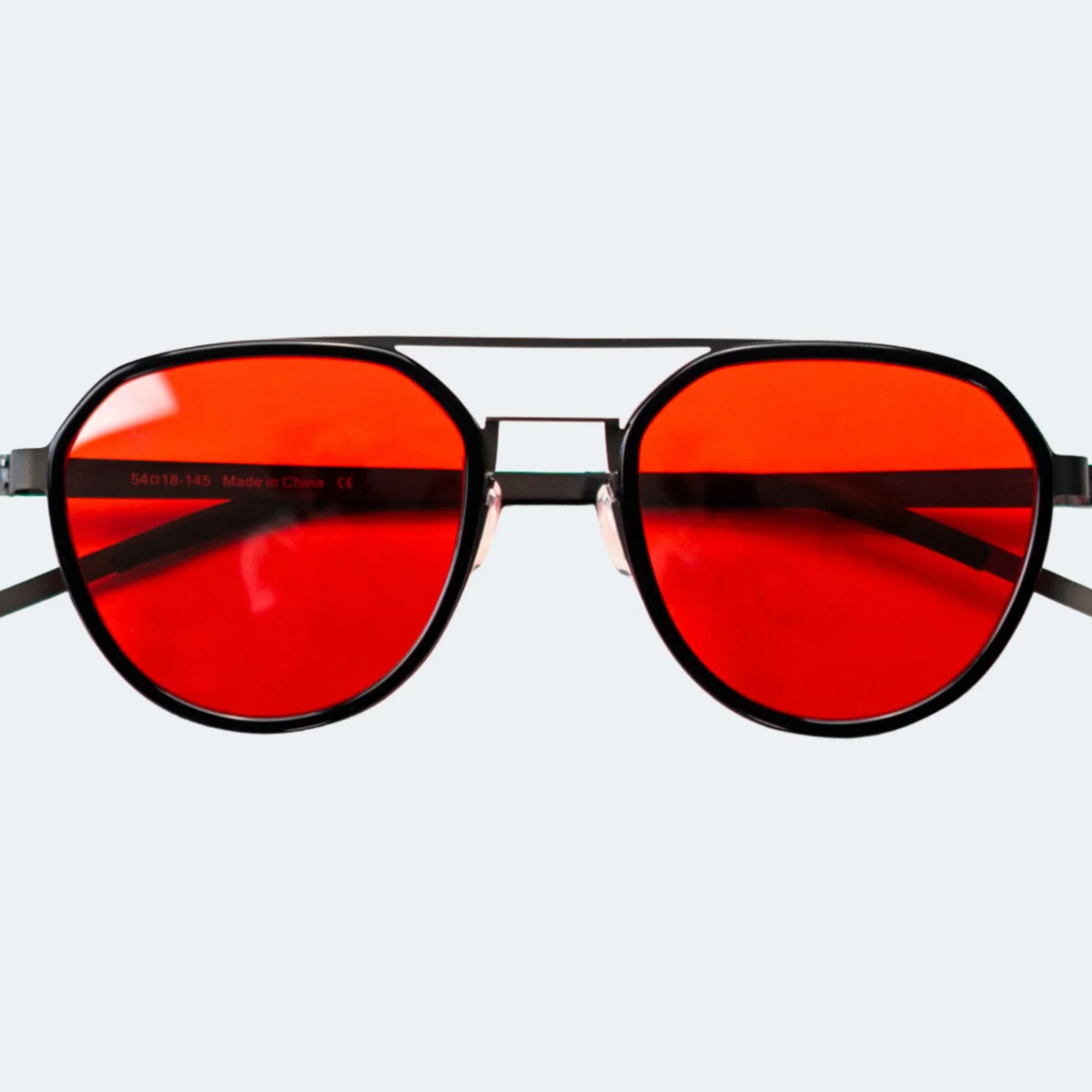Too Much Screen Time?
from our phones, computers, TVs, tablets, even our watches, blue light is everywhere. While these devices are useful, too much screen time comes at a cost.
From harming our eyesight to disrupting our sleep and even impacting our mental health, it’s important to understand the risks and set healthy boundaries.
We’ve already shared the science behind blue light and its effect on your body in a previous post. Today, let’s take a deeper dive into the dangers of excessive screen use (both physically and mentally) and explore simple tools to protect yourself while also encouraging healthier habits away from the screen.
The Physical Toll:
Blue Light and Eyestrain
Screens emit a spectrum of light, but blue light is the most concerning. Prolonged exposure to it can:
Disrupt your circadian rhythm: and delay melatonin production, making it harder to sleep.
Contribute to digital eye strain: blurry vision, headaches, and dry eyes.
Accelerate eye fatigue: especially when paired with long working hours.
While our devices aren’t going anywhere, there are ways to reduce blue light’s impact:
Enable built-in filters: On Apple devices, I keep Night Shift turned on at all times.
IRIS software: IRIS offers customizable modes depending on what you’re doing (reading, working, coding, watching video). It also reduces flicker, which is often overlooked but equally damaging.
f.lux (free): f.lux is a solid free option for desktops and laptops.
Blue light blocking glasses: During the day, I recommend Chroma’s Golden Glos. At night, their Nightshades are ideal for watching TV without wrecking your sleep cycle.
Light therapy alternatives: Something like the Sky Portal
(just got mine recently!) helps balance your exposure to natural-spectrum light, a big win if you’re stuck indoors.
The Mental Strain: Connection, Attention, and Real Life
While eye strain gets the most attention, the mental side of screen time is just as serious. Too much time online can:
Shorten your attention span and make it harder to focus.
Increase stress and anxiety.
Replace deep, meaningful communication with shallow interactions.
Our Recommendations
What’s Missing?
Real-Life Interaction.
Screens promise connection, but often leave us lonelier than before. Instead of doom-scrolling or bingeing another show, try:
Reading real books: a slower, more intentional way to feed your mind.
Board games: laughter and competition with friends or family beats any app.
Going for walks: not only do you get movement, but also exposure to natural light (we’ve written about the many benefits of sunlight before).
Face-to-face conversations: nothing compares to eye contact, tone of voice, and genuine connection.
The antidote to screen fatigue isn’t just cutting back; it’s replacing digital habits with richer, more nourishing ones.
Finding Balance
The truth is, screens aren’t going anywhere. We rely on them for work, connection, and entertainment. But with the right tools and boundaries, we can protect both our bodies and minds.
Protect your eyes and your sleep, and your mental health will thank you. ✨ Small changes in your habits can add up to big improvements in how you feel every day.
Until Next Time, Be Well!





